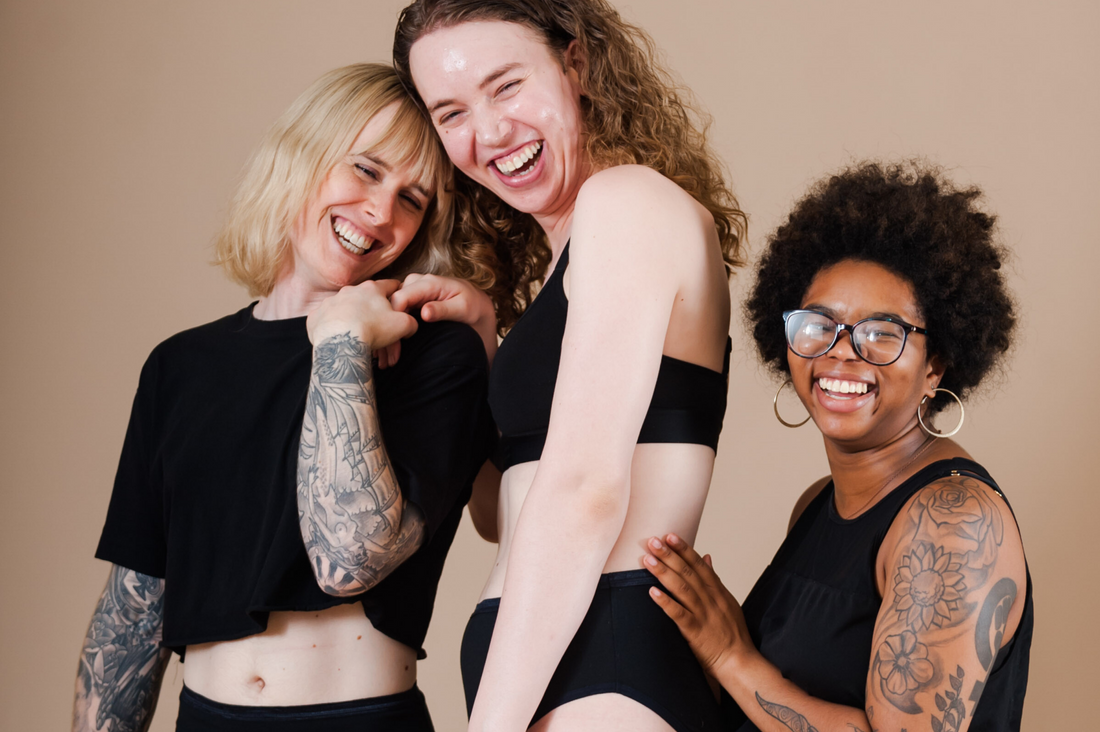Momotaro Apotheca and its materials are not intended to treat, diagnose, cure or prevent any disease. All material on Momotaro Apotheca is provided for educational purposes only. Always seek the advice of your physician or other qualified healthcare provider for any questions you have regarding a medical condition.

YSK: Tips for Allies
Share
This article was originally published November 20, 2019 in honor of Transgender Day of Remembrance
Founded in 1999 by transgender advocate Gwendolyn Ann Smith created a vigil to honor the memory of Rita Hester, a transgender woman killed in 1998. Transgender Day of Remembrance (TDoR) is an opportunity for communities to come together and remember the loved ones lost due to transphobic violence.
Celebrated annually on November 20th, TDoR is often used to talk about the hate crimes that continue to affect transgender, non-binary, and gender non-conforming people. In 2019, we lost 331 transgender and gender-nonconforming individuals, the vast majority black women. But these victims are not statistics; they were individuals with unique journeys, plans and dreams for the future, loved ones, and communities who will miss them every day.
That's why we choose today (and every day) to celebrate, recognize, and raise the visibility of these individuals—those loved and lost, and those still enduring pain today.
We've put together a short list of reminders how you can be a better ally to transgender, gender non-conforming, and non-binary people. Of course, this list is not exhaustive and doesn’t include all the "right" things to do or say because more often than not, there is no "right" way to handle a situation you may encounter.
Most importantly: listen to and respect everyone's personal preferences.
Our actions, reactions, and human interactions can help transform cultural and social institutions into a better, safer place for everyone and anyone who doesn’t conform to conventional gender expectations. Let’s do this, together.

You can't tell if someone is trans from the way they look.
Transgender is a term that is used to describe people who’s gender identity differs from the one assigned at birth. Not all people fit into the gender binary, and some are non-binary. Transgender people don’t look any particular way.
Don't make assumptions about someone's sexual orientation.
Gender is different than sexual orientation. Transgender (like cisgender) people can be straight, gay, bisexual, or lesbians.
 Nicole Sgarlato (she/her) @nicolesgarlato
Nicole Sgarlato (she/her) @nicolesgarlato
Don't assume someone's pronouns.
If you’re unsure of someone’s pronouns, introduce yourself with your pronouns first. If you accidentally use the wrong pronouns, immediately correct yourself and apologize. Do not make excuses.
Don't ask what someone's previous or "real" name is.
These names are referred to as “deadnames.” If you happen to know someone’s birth name that they no longer use, don’t share them without that person’s permission. Calling someone by their old name, identity, gender, etc. is considered disrespectful and an invasion of their privacy. Names and pronouns are forms of affirmation and should be treated with respect. It is your responsibility to be respectful and learn and use their name like you would any new friend.
 Jari Jones (she/her) @iamjarijones
Jari Jones (she/her) @iamjarijones
Understand that everyone transitions differently.
Some transgender people take hormones, some have surgery, some do both, and some choose not to do either. A person’s identity does not depend on anything other than how they identify. There is no correct way to transition and it depends on the individual.
Create an inclusive atmosphere in places you don't know someone's pronouns.
It takes no effort for cisgender people to announce their pronouns. Tell yours and be the first to respectfully ask. For example, you can say, "Hey, my name is Sam! I use she/her pronouns. What are yours?"
 Corey Daniella Kempster (she/her) @coreymeetsworld
Corey Daniella Kempster (she/her) @coreymeetsworld
Support all-gender restrooms.
Transgender, non-binary, and non-conforming people may not feel like they match the signs on the standard restroom signs. Advocate to make the signs at your meeting hall, workplace, etc. to be inclusive of all genders and promote safety and inclusivity of personal care products everywhere.
Don't ask about a person's genitals, surgical status, or sex life.
Asking about any persons genitalia is never appropriate. The same goes with their surgical status. People may or may not want to share milestones in their transition.
Educate yourself.
Please do not place the burden of your education on transgender individuals. They have no obligation to share, educate, or inform any person or group. There are numerous resources online at your disposal. Instagram is a great source; there are many folks who provide free education and open dialogue. (But don't forget to hit that Paypal or Venmo—SUPPORT THEM!).

Z the Bug (he/him) @zthebug
Related Reading
Meet the Photographer Celebrating Trans Existance as a Space in Constant Flux Interview with Laurence Philomene (they/them) @laurence.philomene
LGBTQIA + Z the Bug Interview with Z Walsh, model (he/him) @zthebug
A Different Kind of Pride by Casey Tanner (she/her) @queersextherapy
The Radical Love + Laughter of Jari + Corey Profile on Jari Jones (she/her) + Corey Daniella Kempster (she/her) by Jen Winston (she/her) @girlpowersupply
Redefining Activism by Kénta Xiadani Ch'umil (they/them) @kenta.chumil
Online Resources
Overview of LGBTQIA activism and rights via Gay & Lesbian Alliance Against Defamation (GLAAD
All about trans and gender nonconforming identities via Planned Parenthood)
Learn more about Transgender Day of Remembrance via Human Rights Campaign (HRC)
View a complete list of those lost to transgender violence via Trans Lives Matter


1 comment
What’s the best way to respond to someone who is trying to ask you about a friend’s pronouns instead of asking the person themselves? Usually i just say, well thats not for me to answer ans it would be more respectful of you to ask them. Is that ok?